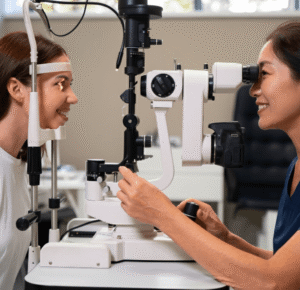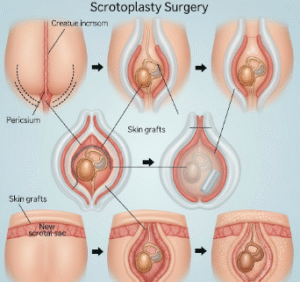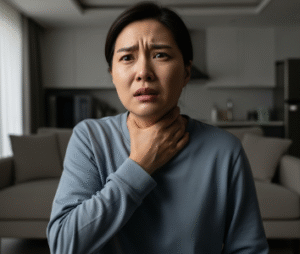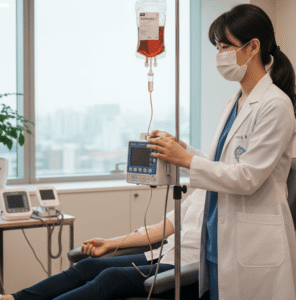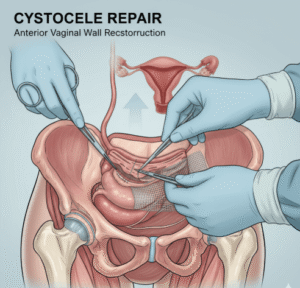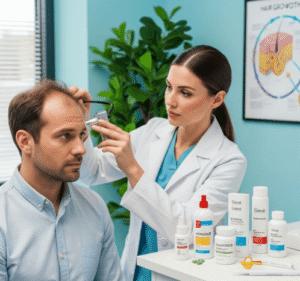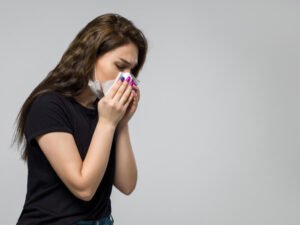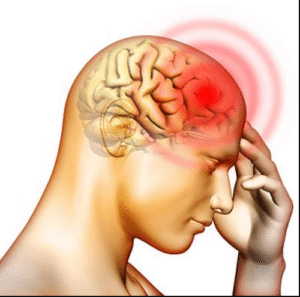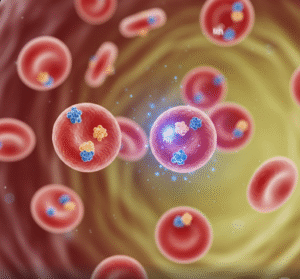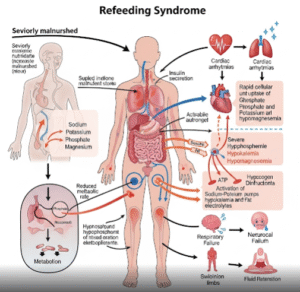Overview
Parosmia is a disorder involving a distortion of the sense of smell. People with parosmia perceive familiar odors as unpleasant, different, or even offensive. It often follows viral infections like COVID-19 but may also result from head trauma, sinus issues, or neurological conditions.
In South Korea, medical centers offer comprehensive diagnostic tools and specialized treatments to address parosmia, including therapy aimed at restoring olfactory function and quality of life.
What is Parosmia?
Parosmia is a qualitative smell disorder where the brain misinterprets odor signals. For example, something that normally smells pleasant—like coffee or fruit—may suddenly smell rotten, burnt, or chemical-like. It differs from anosmia (loss of smell) or hyposmia (reduced smell) and is often described as a “rewiring” of the sense of smell.
It is typically temporary but can last for weeks or months depending on the underlying cause.
Symptoms
Common symptoms of parosmia include:
- Distorted perception of odors
- Strong aversion to previously pleasant smells
- Smells becoming unpleasant or foul
- Difficulty identifying food aromas
- Nausea or discomfort due to certain scents
- Emotional distress linked to persistent odor changes
These symptoms can affect appetite, mental health, and quality of life.
Causes
Parosmia is often associated with damage to the olfactory sensory neurons or disruption in the smell pathways to the brain. Common causes include:
- Post-viral infections (especially COVID-19, influenza)
- Head trauma or traumatic brain injury
- Chronic sinusitis or nasal polyps
- Neurological diseases (e.g., Parkinson’s, Alzheimer’s)
- Exposure to toxic chemicals
- Epilepsy (especially temporal lobe-related)
- Radiation therapy affecting the nasal cavity
COVID-19 has been one of the most common triggers for parosmia in recent years.
Risk Factors
Individuals may be more at risk for parosmia if they:
- Recently had COVID-19 or another respiratory virus
- Have a history of head injury
- Suffer from chronic sinus infections
- Have neurological conditions
- Smoke or have exposure to toxic fumes
- Are undergoing radiation or chemotherapy
- Are older (age-related decline in olfactory function)
Complications
Parosmia, while not life-threatening, can lead to:
- Loss of appetite and weight loss
- Malnutrition due to aversion to food
- Depression and anxiety
- Poor quality of life
- Social withdrawal due to food or environmental odor issues
- Olfactory hallucinations (phantosmia) in some cases
Proper diagnosis and therapy can help reduce these complications.
Prevention
While parosmia can’t always be prevented, certain steps may help reduce the risk:
- Protect against head trauma (wear helmets when needed)
- Seek early treatment for sinus infections
- Avoid smoking or exposure to toxins
- Practice good nasal hygiene and use saline sprays
- Boost immune health to prevent viral infections
- Follow up with ENT specialists after a significant upper respiratory infection
- Be cautious with medications or treatments that may affect smell
Treatment Options in Korea
South Korea offers cutting-edge treatments and diagnostic options for parosmia, delivered by ENT specialists, neurologists, and smell disorder clinics.
1. Diagnostic Evaluation
- Smell tests (UPSIT) and olfactory identification tests
- Endoscopy to examine nasal passages
- MRI/CT scans to rule out brain lesions or sinus issues
- COVID-19 antibody or PCR tests if recent viral infection suspected
2. Medical Treatments
- Steroid nasal sprays or oral steroids (to reduce inflammation)
- Nasal saline irrigation to clear sinus blockage
- Antiviral or antibiotic medications (if infection present)
- Zinc or Vitamin A supplements to support nerve recovery
- Anti-seizure or antidepressant medications in select cases
3. Olfactory Training
- Involves sniffing specific essential oils (rose, lemon, clove, eucalyptus) twice daily
- Helps retrain the brain to correctly interpret smells
- Typically continued for several months
4. Neurological Support
- For patients with brain-related causes, neurology consults and therapy may be included
- Cognitive behavioral therapy (CBT) to manage psychological symptoms
5. Advanced Care Facilities in Korea
Top Korean hospitals offering parosmia care include:
- Seoul National University Hospital (SNUH)
- Asan Medical Center
- Samsung Medical Center
- Yonsei Severance Hospital
Many of these centers offer multilingual support, ENT specialists, and state-of-the-art olfactory treatment programs.



